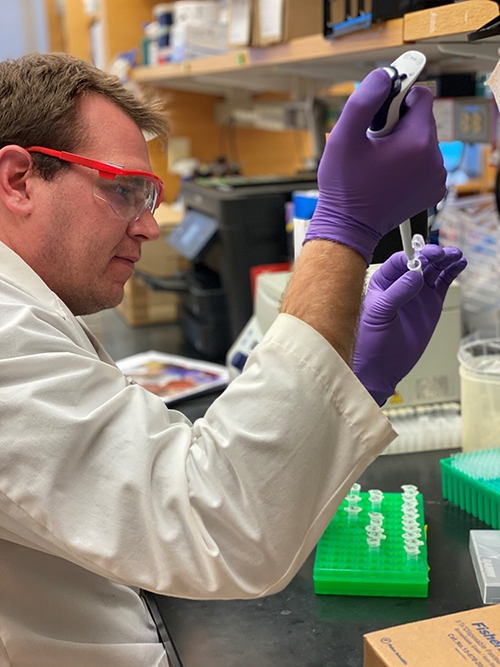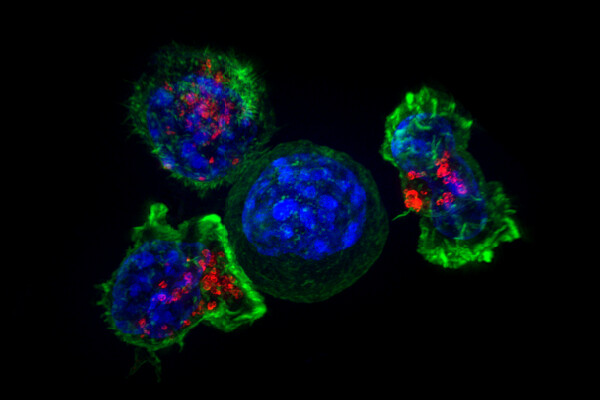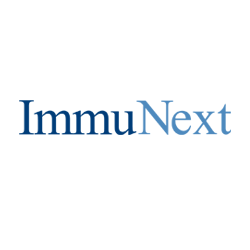 The U.S. spends billions of dollars in drug development every year hoping to cure disease, end suffering, and extend life. The problem is that of the thousands of pharmaceuticals that enter the drug pipeline, only a small percentage make it out.
The U.S. spends billions of dollars in drug development every year hoping to cure disease, end suffering, and extend life. The problem is that of the thousands of pharmaceuticals that enter the drug pipeline, only a small percentage make it out.
“Pharma has big challenges in trying to de-risk drug targets early in their conceptual development. And at the same time, academics don't typically have the resources, focus or training to bring new ideas to the start of the drug pipe pipeline,“ says Jay Rothstein, Chief Scientific Officer at ImmuNext, Inc.
ImmuNext founders Randolph Noelle and David DeLucia zeroed in on one area that could benefit from early de-risking: drugs that control a malfunctioning immune system. Both immune overreaction, such as in autoimmune diseases, and underreaction, as in cancers, lead to disease. “We're often trying to turn up the immune system to target cancer, and in autoimmune disease [we’re] doing the opposite,” says Rothstein.
In 2012 ImmuNext received a Phase I Small Business Innovation Research (SBIR) grant from the National Institute of Allergy and Infectious Diseases (NIAID), which helped the researchers test a drug meant to suppress tumor growth by turning off the immune system’s “brakes.” Successful results led to a licensing agreement in 2012 with Janssen Pharmaceutica and a re-licensing agreement in 2020 with Curis, with hopes to start phase one clinical trials next year.
The problem is that of the thousands of pharmaceuticals that enter the drug pipeline, only a small percentage make it out.
Equipped with a milestone payment from Janssen and a Phase I Small Business Technology Transfer (STTR) grant with Dartmouth College in 2012 from NIAID, ImmuNext researchers focused on developing a second drug by re-engineering the first. “We were able to modify the original [cancer] drug to do the opposite, which is to slow down the immune system and use it for autoimmune disease,” says Rothstein.
With support from a 2014 Phase II Small Business Technology Transfer (STTR) grant, ImmuNext entered a licensing agreement in 2016 with the healthcare company Roche to develop an autoimmune and anti-inflammatory therapeutic.
 “Financial support from the NIH as part of their SBIR program was very much a critical component to the early start of this company [and] it continues to be a component of our success,” says Rothstein.
“Financial support from the NIH as part of their SBIR program was very much a critical component to the early start of this company [and] it continues to be a component of our success,” says Rothstein.
In 2013 ImmuNext received both a Phase I STTR and a Phase II SBIR to investigate another target of immune malfunction which could potentially treat disorders like multiple sclerosis (MS) and lupus.
Funding from a fast-tracked Phase I/Phase II SBIR grant from NIAID awarded in 2018 allowed ImmuNext to investigate an autoimmune drug that targets the metabolism of overacting immune cells. “It's actually one of the first metabolic inhibitors of the immune system that has ever been really developed.” Human testing could begin as early as 2021.
Because of their focus on treating immune malfunctions, Rothstein thinks their small company could make a big impact. “Our drugs treat cancer and very [prevalent] autoimmune diseases like MS, colitis, rheumatoid arthritis, and lupus. The opportunity we have to be successful with our pharma partners provides an opportunity to have great impact on public health.”







